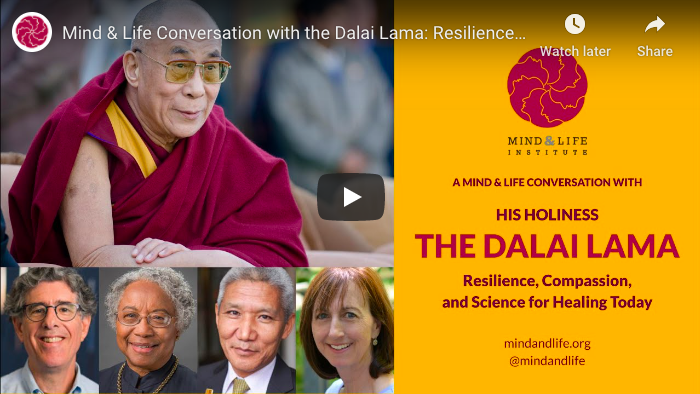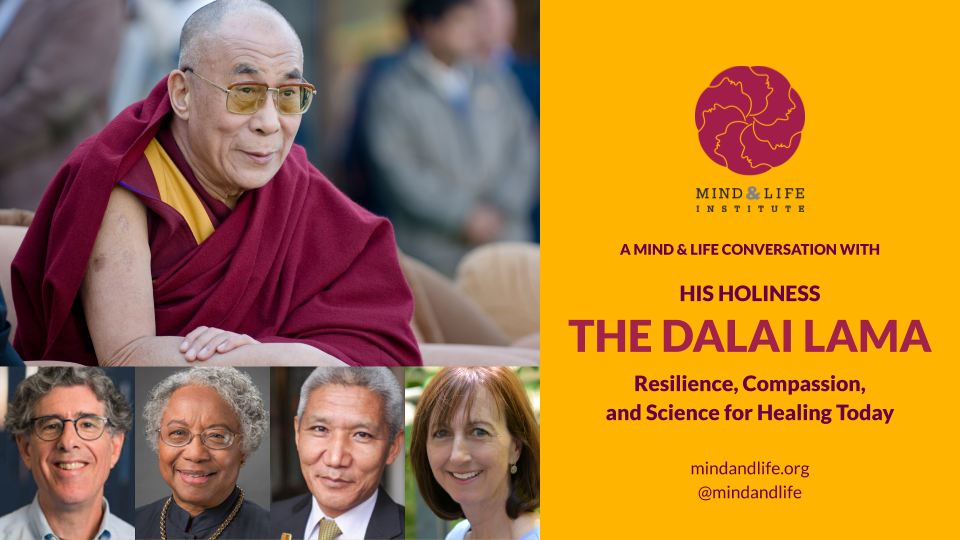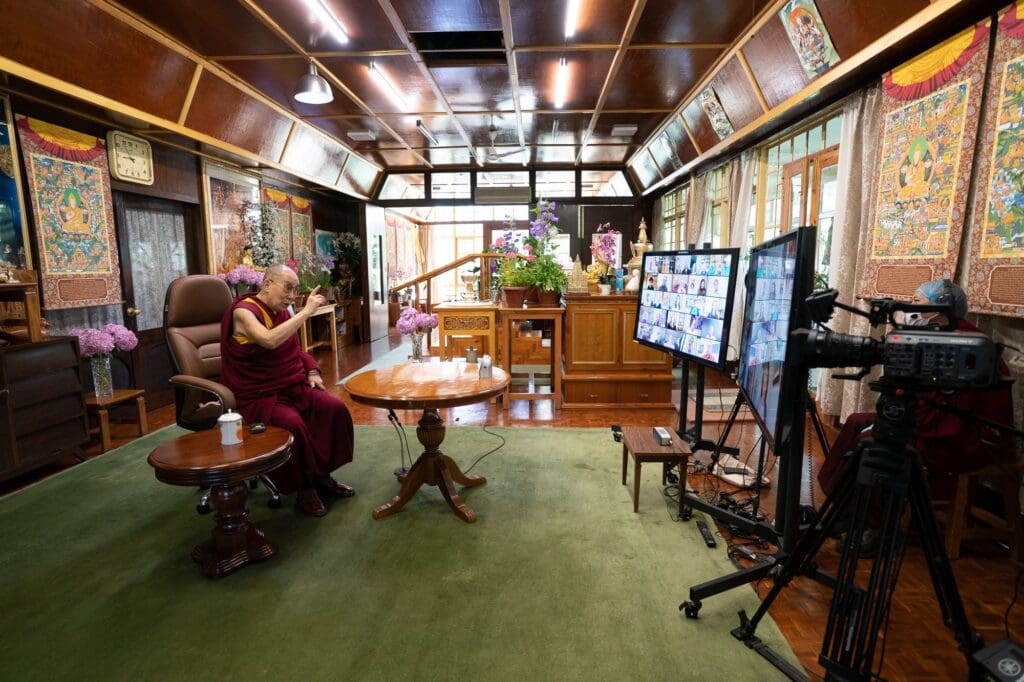
In a world besieged by the COVID-19 pandemic and rocked by anti-racism protests, more than 1.3 million people tuned-in to a livestream event, simultaneously translated into 14 languages, to hear the Dalai Lama offer insights on the way forward.
Hosted by the Mind & Life Institute, the June 19 “Conversation with the Dalai Lama on Resilience, Compassion, and Healing for Today,” coincided with the Juneteenth holiday celebrating the emancipation of those who had been enslaved in the United States. Over 90 minutes, the global leader spoke to the urgency of managing destructive emotions, the primacy of recognizing our essential oneness, and the role of education in equipping emerging generations to do both.
Pointing to the Institute’s 33-year history of Dialogues with the Dalai Lama, Mind & Life President Susan Bauer-Wu kicked-off the conversation. “You have inspired us to be curious and ask big questions,” she said, reflecting on Mind & Life’s mission to bridge science and contemplative wisdom to bring “good into the world.” Joining her was Mind & Life Board Chair Thupten Jinpa, President of the Compassion Institute and the Dalai Lama’s long-time translator.
Moderator Carolyn Jacobs, Dean Emerita of the Smith College School of Social Work, anchored the conversation by first asking the global leader for advice on how to cope with the fear and uncertainty brought about by recent unprecedented events.
Seated before two large screens displaying the faces of Conversation participants and special guests, the Dalai Lama began by offering his appreciation to the healthcare workers who have faced “risk and danger in their own life” in caring for people during the pandemic. He then cautioned against the overwhelming pull of fear and anxiety at a time of profound loss and uncertainty.
“Fear makes us more vulnerable,” said the Dalai Lama, who has long spoken to the impact of negative emotions like fear and anger, which can distort our ability to think clearly. The topic was the focus of a 2000 Mind & Life Dialogue as chronicled in Daniel Goleman’s book, Destructive Emotions.
The Dalai Lama also reinforced the connection between mental attitudes and racial injustice. “Thinking ‘my group,’ ‘their group’ on the basis of religion, on the basis of color, on the basis of social status—all this is old thinking,” he said. “We have to think [in terms] of one humanity… That’s my number one commitment: to promote a sense of oneness of seven billion human beings.”
“That’s my number one commitment: to promote
a sense of oneness of seven billion human beings.”
– The Dalai Lama
Discussant Richie Davidson, Founder and Director of the Center for Healthy Minds, elaborated on the impact of fear and uncertainty on both mental and physical health. “One of the problems people face is uncertainty, uncertainty about how this will end, uncertainty about whether they’re infected,” he said. Living amid pervasive fear and anxiety also has biological effects, he added, citing that among those ages 35 to 45 in the United States, black people are ten times more likely to die from the coronavirus than white people—a legacy of systemic racism.
“How can we control our minds and not be so influenced by messages of fear?” he posed.
Our mental states can be affected by meditation and exercises to control our breathing, responded the Dalai Lama. “Through training, through reason, we can develop positive emotions,” he said.
Davidson then acknowledged the Dalai Lama’s role in catalyzing the scientific study of meditation and compassion training through early Mind & Life Dialogues and subsequent research now constituting the field of contemplative science. He went on to cite one finding “that relatively short amounts of compassion practice can reduce implicit bias, [a form of] prejudice that is subtle, non-conscious, and present in our demeanor and behavior to members, for example, of racial outgroups.” Davidson then asked how such knowledge and practices, especially the cultivation of compassion, can be disseminated more broadly to achieve greater impact in today’s world.
In response, the Dalai Lama returned to a familiar refrain: education. “Education about our inner world is very much lacking,” he said, speaking to the importance of teaching students about their minds and emotions. What the Dalai Lama has long referred to as educating the heart, includes equipping students to manage difficult emotions, build positive relationships, and understand their role in an interconnected world.
“Through education we can change,” he emphasized, and evolve into a more compassionate society. “Ultimately, this is the source of individual happiness, the happiness of the community, and the happiness of [the world’s] seven billion human beings.
To view the full Conversation, watch the video.
Participants

His Holiness the 14th Dalai Lama
Honorary Board Chair
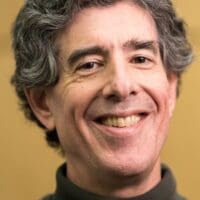
Richard J. Davidson, PhD
William James and Vilas Research Professor of Psychology and Psychiatry and Founder & Director of the Center for Healthy Minds, University of Wisconsin-Madison. Founder and Chief Visionary for Healthy Minds Innovations, Inc.

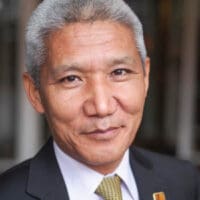

Susan Bauer-Wu
Mind & Life Institute


